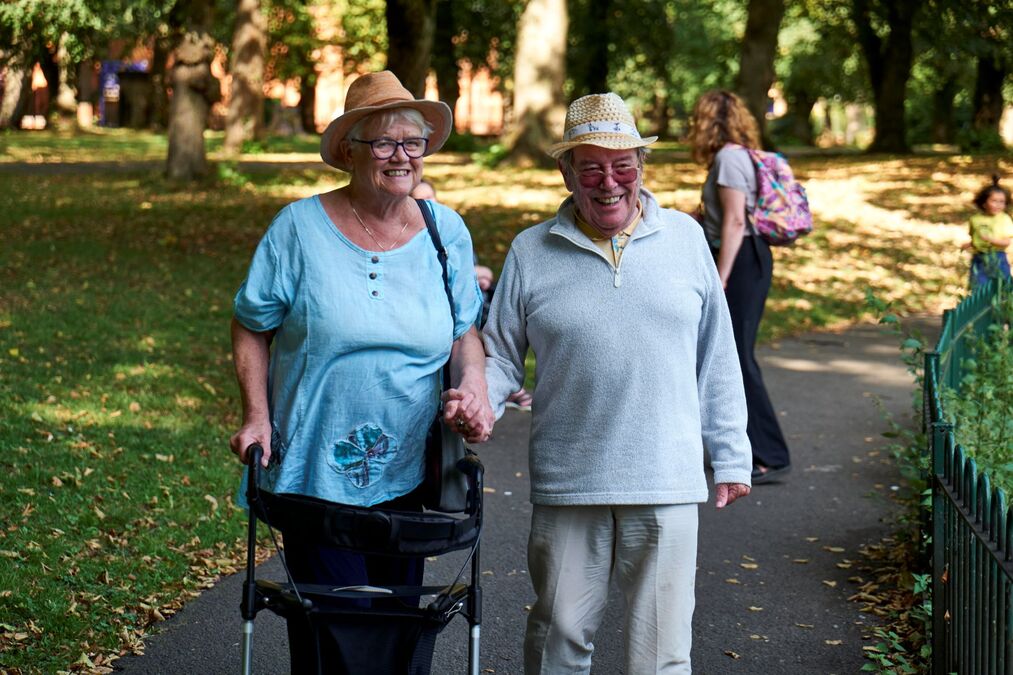Published:

After the country baked in record-breaking heat last week, academics have announced a first-of-its-kind research project to build greater understanding about how extreme weather events pose new challenges for healthy ageing.
Working with older people's groups and key climate change actors, the research will explore how to mitigate against extreme weather by co-designing and co-producing potential solutions at the local, community, and city level.
The work is funded by UK Research and Innovation through its Healthy Ageing Challenge via the APPROACH call, part of the Social Behavioural & Design Research Programme. The project will build on the work of Age Friendly Cities and Communities (AFCCs) which already encourage active ageing by creating improved opportunities for health, participation and security, enhancing the quality of life as people age.
The new project will explore the factors that contribute to the resilience of older people to climate change, including heatwaves, flooding and storms, in the UK. Working with a range of stakeholders and communities, the team will develop policy recommendations, a collaborative consortium and a roadmap for local and national action to achieve inclusive and climate resilient AFCCs in the UK.
Professor Ryan Woolrych, a professor in ageing and urban studies and director of the Urban Institute at Heriot-Watt University, is leading the research. He said:
“Up to now, little research has been conducted around how extreme weather events impact healthy ageing and Age Friendly Cities and Communities (AFCC). There's an urgent need to deliver support that harnesses the contribution older people can make to climate action while reducing their vulnerability, and building climate resilience through individual, social and community-level action.
“This project will identify the barriers and opportunities to inclusive climate resilient AFCCs by working with older people, policymakers, businesses, social enterprises and entrepreneurs. We will co-design solutions with these key groups to achieve positive actions that support healthy ageing for older people in response to the climate crisis.
“Climate change and a rapidly ageing population are progressing simultaneously, yet older people are often overlooked in climate change discussions including conferences like COP26. Yet, it is this group that is disproportionately impacted by extreme weather. The combined effects of climate change on the health and wellbeing of older people must be better understood and addressed urgently by policymakers and planners as we plan for the future so appropriate city and community mitigation approaches can be put in place.”
In the next three decades, the number of people aged 60 years or over is expected to double from 1.1 billion in 2021 to 2.1 billion by 2050, reaching 21% of the total global population. As family dynamics change, more older people will also live alone which has implications for long-term health and social care. Having access to resources and assets at a local level to support healthy ageing is therefore critical.
Dr Gary Haq, a senior researcher from the Stockholm Environment Institute at the University of York, is collaborating on the project. He added: “This research will benefit nongovernmental organisations who are pivotal in delivering health and wellbeing interventions for older people including charities and national and international advisory bodies by supporting the development of age-friendly interventions. We expect our outcomes will be of significant value to those who have responsibility for implementing health, wellbeing and place-making policy including public health authorities, local government, urban planning and older people's commissioners. Our outputs will also be used by specific climate change networks and coalitions that are working towards interventions to address issues of inclusivity in the climate change agenda. This will help to better advise UK and devolved governments.”
For more information or to collaborate on the project, please contact Professor Woolrych on r.d.woolrych@hw.ac.uk.